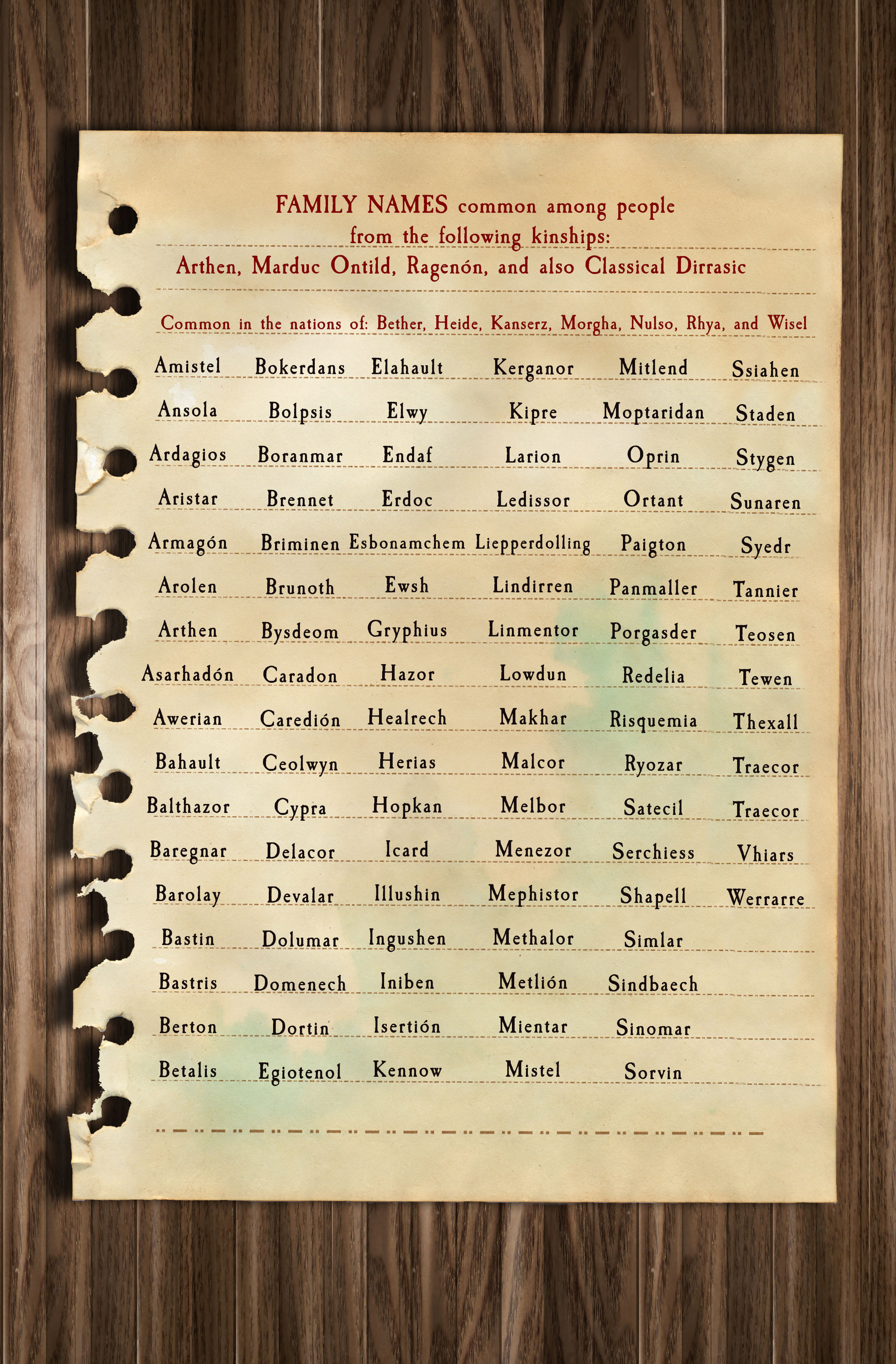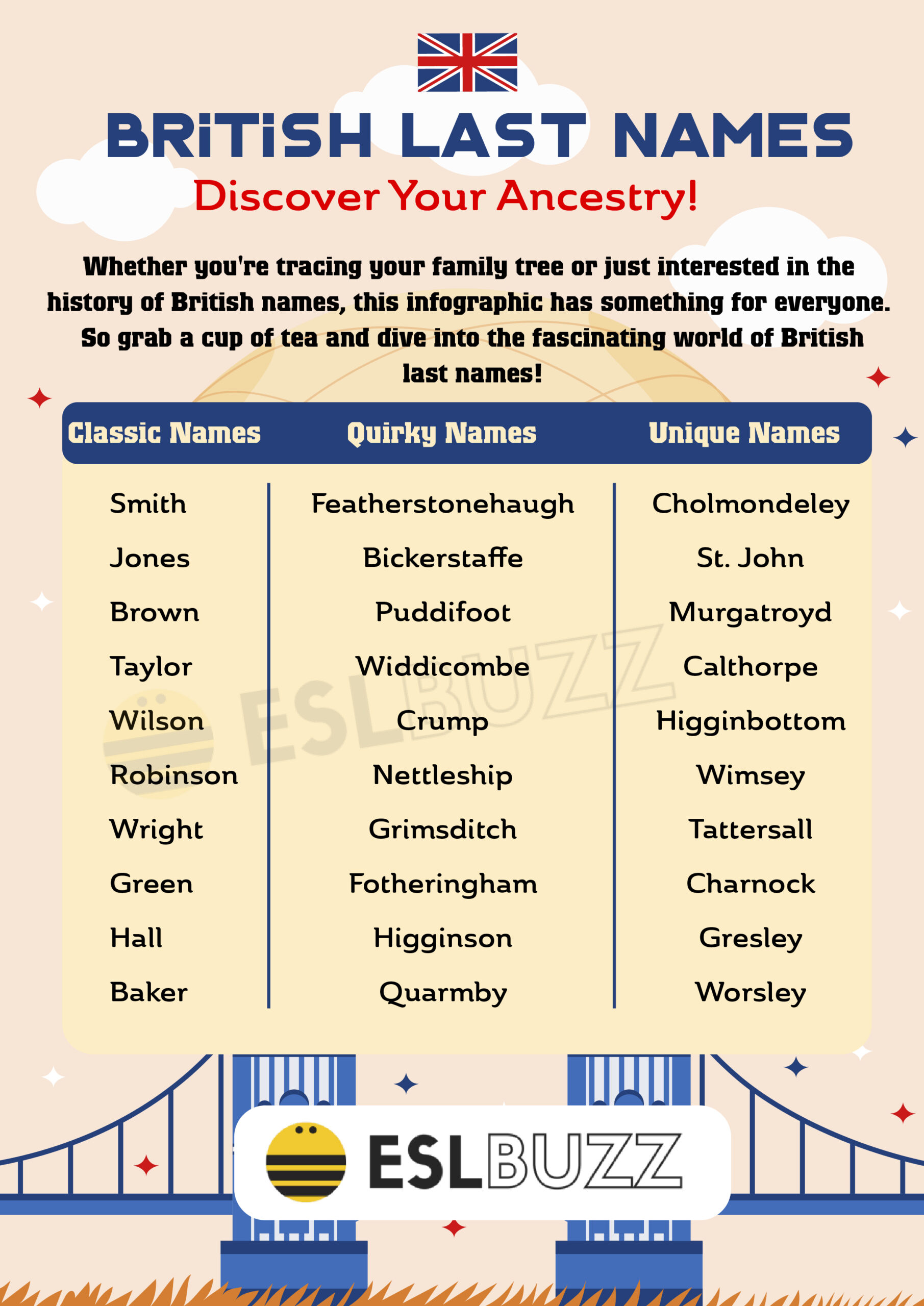Gothic Last Names: Unveiling The Dark And Enigmatic Surnames
Have you ever wondered why some last names sound like they belong to a dark, mysterious world? Welcome to the realm of gothic last names! These surnames carry a certain aura, evoking images of old castles, shadowy forests, and ancient legends. If you're fascinated by the gothic culture or simply curious about the origins of these hauntingly beautiful names, you're in the right place. So, buckle up and let’s dive into the world of gothic last names!
From Dracula to Nosferatu, the gothic world has always captivated our imaginations. But did you know that the origins of gothic last names go way beyond fictional characters? These surnames are deeply rooted in history, folklore, and cultural traditions. Some of them even date back to medieval Europe, where the gothic style was born. It’s like stepping into a time machine and exploring the secrets of the past.
Now, before we get too deep into the labyrinth of gothic last names, let’s address the elephant in the room. Why are these names so fascinating? Is it because they sound exotic? Or is it their connection to the darker side of human history? Whatever the reason, one thing is for sure—these names have a story to tell, and we’re here to uncover it. So, let’s get started!
- Comprehensive Guide To The English Premier League Fixtures 202324
- The Enchanting World Of Susan Miller Astrology
Table of Contents
- The History Behind Gothic Last Names
- Common Gothic Last Names and Their Meanings
- Origins of Gothic Surnames
- Famous People with Gothic Last Names
- Modern Usage of Gothic Last Names
- The Impact of Gothic Last Names on Subcultures
- How to Choose a Gothic Last Name
- Frequently Asked Questions About Gothic Last Names
- Resources for Learning More About Gothic Last Names
- Conclusion: Embrace the Gothic Legacy
The History Behind Gothic Last Names
Gothic last names didn’t just appear out of thin air. They have a rich history that dates back centuries. The term "gothic" itself originates from the Goths, an ancient Germanic tribe that played a significant role in the fall of the Roman Empire. Over time, the word evolved to describe a style of art, architecture, and literature characterized by its dark, dramatic, and sometimes eerie qualities.
When it comes to surnames, the gothic influence can be traced to medieval Europe. During this period, people began adopting hereditary surnames to distinguish themselves from others with the same first name. Some of these surnames were inspired by locations, occupations, or even physical characteristics. For example, the surname "Blackwood" might refer to someone who lived near a dark forest, while "Nightshade" could indicate a connection to poisonous plants.
Interestingly, many gothic last names also have ties to mythology and folklore. Names like "Drake" (dragon) or "Raven" evoke images of mythical creatures and dark omens. These names were often chosen to reflect the personality or beliefs of the individual, adding another layer of depth to their meaning.
- Discover The Health Museum Where Science Meets Everyday Life
- Unveiling The Magic Of The Nba Finals A Deep Dive Into Basketballs Pinnacle Event
How Gothic Last Names Reflect Cultural Identity
Now, let’s zoom in on how these names reflect cultural identity. In many societies, surnames were a way of preserving family history and heritage. For instance, in Ireland, you’ll find gothic last names like "O’Neil" or "MacCormack," which denote descent from noble or warrior families. Similarly, in Scotland, names like "MacLeod" or "Campbell" carry a sense of pride and tradition.
But it’s not just about history. Gothic last names also tell us a lot about the values and beliefs of the people who bore them. In medieval times, darkness and mystery were often seen as powerful forces. By adopting these names, individuals were aligning themselves with something greater than themselves—something timeless and enduring.
Common Gothic Last Names and Their Meanings
Let’s take a closer look at some of the most common gothic last names and what they mean. These names are not only fascinating but also steeped in symbolism. Here’s a list to get you started:
- Drake: Derived from the Old English word for dragon, this name symbolizes power and strength.
- Raven: A name associated with intelligence and mystery, often linked to the bird of the same name.
- Blackwood: Refers to someone who lived near a dark forest, evoking a sense of isolation and mystery.
- Nightshade: A reference to the poisonous plant, this name carries connotations of danger and intrigue.
- Shadow: A simple yet evocative name that suggests secrecy and concealment.
- Grimm: Known for its association with fairy tales, this name conveys a sense of seriousness and depth.
These names are just the tip of the iceberg. Each one has its own unique story and significance, making them a treasure trove for anyone interested in genealogy or gothic culture.
Subtle Variations in Gothic Last Names
Did you know that some gothic last names have subtle variations depending on the region? For example, the name "Drake" might be spelled "Dracul" in Romania, where it’s associated with the legendary figure of Vlad the Impaler. Similarly, "Raven" could become "Corvus" in Latin-speaking areas, adding a touch of classical elegance to its dark allure.
These variations highlight the diversity and adaptability of gothic last names. They also remind us that language is a living, breathing entity that evolves over time. So, whether you prefer the original spelling or a regional variation, there’s something special about these names that transcends borders and cultures.
Origins of Gothic Surnames
Understanding the origins of gothic last names is like solving a puzzle. Each piece reveals a little more about the people who bore these names and the world they lived in. Let’s explore some of the key factors that influenced the creation of these surnames.
First, there’s geography. Many gothic last names are tied to specific locations, such as forests, mountains, or rivers. For example, the name "Frost" might refer to someone who lived in a cold, icy region, while "Moor" could indicate a connection to a marshy area. These names were often descriptive, helping to identify individuals based on their environment.
Second, there’s occupation. In medieval times, people often took on surnames related to their jobs. A blacksmith might be called "Forge," while a weaver could be known as "Loom." These occupational names not only reflected their profession but also their skills and expertise.
Finally, there’s personal characteristics. Some gothic last names were inspired by physical traits or personality quirks. For instance, the name "Pale" might describe someone with fair skin, while "Mysterious" could refer to someone with an enigmatic demeanor. These names were a way of capturing the essence of the individual in a single word.
How Geography Shaped Gothic Last Names
Let’s delve deeper into how geography shaped gothic last names. Imagine living in a world without GPS or maps. Back then, your surroundings were your address. If you lived near a dark forest, you might be called "Blackwood." If you resided by a misty lake, you could be named "Mist." These names were not only practical but also poetic, painting a vivid picture of the landscape.
But it’s not just about location. Geography also influenced the cultural context in which these names were created. For example, in northern Europe, where winters were harsh and daylight scarce, names like "Winter" or "Snow" were common. In contrast, in warmer climates, you might find names like "Sunshade" or "Breeze." These names reflect the unique challenges and opportunities of each region, adding another layer of depth to their meaning.
Famous People with Gothic Last Names
Throughout history, there have been many famous people with gothic last names. These individuals have left their mark on the world, using their names as a badge of honor. Here are a few examples:
- Vladimir Dracula: Also known as Vlad the Impaler, this Romanian prince inspired the legendary vampire character Count Dracula.
- Edgar Allan Poe: A master of gothic literature, Poe’s works continue to captivate readers with their dark, haunting themes.
- Charles Dickens: While not a gothic last name per se, Dickens’ novels often featured characters with gothic-inspired surnames, such as "Gradgrind" and "Squeers."
These names are more than just labels. They’re a testament to the power of storytelling and the enduring legacy of gothic culture.
The Legacy of Gothic Last Names in Literature
Literature has played a significant role in popularizing gothic last names. From Mary Shelley’s "Frankenstein" to Bram Stoker’s "Dracula," these names have become synonymous with mystery and intrigue. But it’s not just about the stories themselves. It’s about how these names resonate with readers, creating a sense of atmosphere and tension that draws them in.
For example, the name "Frankenstein" conjures images of a dark laboratory and a monstrous creation. Similarly, "Dracula" evokes visions of a castle perched on a cliff, shrouded in mist. These names are more than just words—they’re portals to another world, one where anything is possible.
Modern Usage of Gothic Last Names
In today’s world, gothic last names are still very much in use. Whether it’s in literature, music, or even pop culture, these names continue to captivate audiences. Let’s take a look at some examples:
- Music: Bands like Ghost and Volbeat often incorporate gothic elements into their music, using names like "Cemetary" or "Graveyard" to enhance the mood.
- Film and TV: Shows like "American Horror Story" frequently feature characters with gothic last names, adding to the eerie atmosphere.
- Video Games: Games like "Elden Ring" and "Dark Souls" use gothic-inspired names to create immersive worlds filled with danger and mystery.
These examples show that gothic last names are not just relics of the past. They’re a vital part of our cultural landscape, influencing everything from fashion to entertainment.
Gothic Last Names in the Digital Age
With the rise of social media and the internet, gothic last names have found new life in the digital age. Platforms like Instagram and TikTok are full of users with creative usernames inspired by gothic culture. For example, you might come across accounts like "GothicVibes" or "DarkDreamer," each with their own unique aesthetic.
These names are not only a way of expressing individuality but also a means of connecting with like-minded people. In a world where authenticity is key, gothic last names offer a sense of identity and belonging that resonates with many.
The Impact of Gothic Last Names on Subcultures
Gothic last names have had a profound impact on subcultures around the world. From goth fashion to alternative music, these names have become a symbol of rebellion and self-expression. Let’s explore how they’ve influenced some of the most iconic subcultures:
- Goth Subculture: Known for its dark, dramatic style, the goth subculture often incorporates gothic last names into its aesthetic.
- Punk Movement: With its emphasis on individuality and nonconformity, the punk movement has embraced gothic last names as a way of challenging societal norms.
- Steampunk: This subculture combines Victorian-era fashion with futuristic technology, often using gothic-inspired names to enhance the atmosphere.
These subcultures show that gothic last names are more than just names—they’re a way of life. They represent a shared set of values and beliefs that transcend generations.
Why Gothic Last Names Matter in Subcultures
So, why do gothic last names matter in subcultures? The answer lies in their ability to convey meaning and identity. In a world where conformity is often the norm, these
- Discover The Ultimate Seafood Dining Experience At Legal Seafood Harborside
- Discover The Vibrant World Of Huntsville Alabama A Comprehensive Guide To Toc Huntsville Al

Gothic Baby Names

last names 1. apellidos 1 by Jamesheiden on DeviantArt

Exploring Common Victorian Surnames A Deep Dive Into History And Legacy